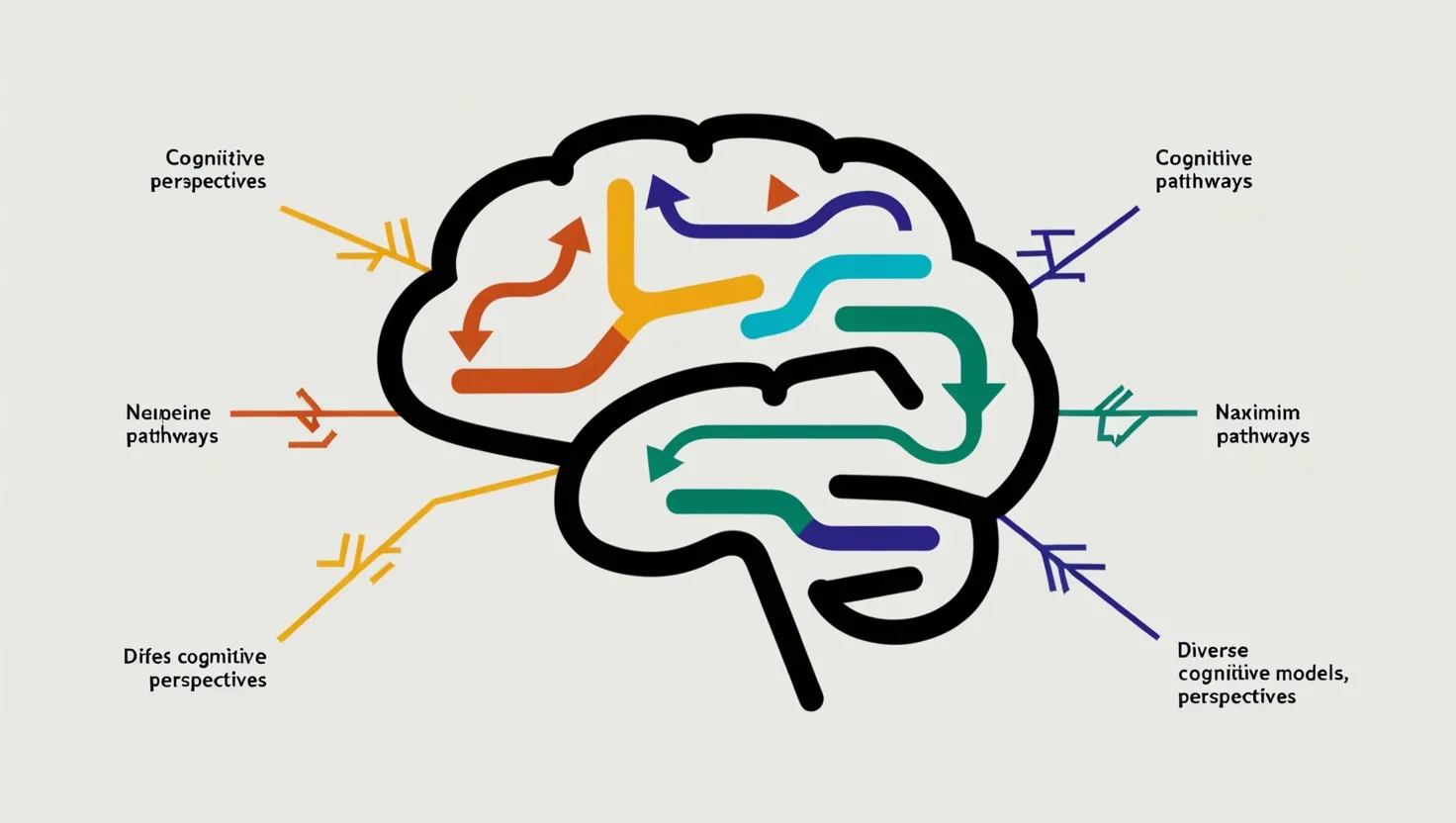In the intricate world of finance and strategy, there’s a lesser-known but powerful concept that can give you a significant edge: cognitive arbitrage. This isn’t about the traditional arbitrage where you exploit price differences in different markets; it’s about leveraging the gaps between different mental models and how various individuals, groups, or industries perceive and interpret information.
Imagine walking into a room where tech entrepreneurs and traditional bankers are discussing blockchain technology. You might notice that these two groups view this technology through completely different lenses. The tech entrepreneurs see blockchain as a revolutionary tool for decentralization and transparency, while the bankers view it as a potential disruptor to their traditional systems. This disparity in perception creates a unique opportunity – an opportunity to innovate and create financial products that cater to both worlds.
Cognitive arbitrage is all about identifying and capitalizing on these mental model discrepancies. It involves mapping out how different people or groups think and interpret the same information in varying ways. For instance, consider the generational gaps in understanding social media. Millennials and Gen Z might see social media as an integral part of their daily lives, while older generations might view it as a novelty or even a threat. These differing perspectives can lead to mispriced stocks in the tech sector, creating an arbitrage opportunity for those who can navigate these cognitive gaps.
The Power of Cognitive Diversity
Cognitive diversity is not just a buzzword; it’s a strategic asset. When you bring together people with different backgrounds, experiences, and mental models, you create a rich tapestry of perspectives. This diversity can help you spot opportunities that others might miss or misunderstand. For example, in the realm of social media, understanding the different ways various age groups interact with platforms can help you predict market trends more accurately.
Navigating Mental Model Mismatches
Navigating these mental model mismatches requires a deep understanding of human cognition and behavior. It’s about recognizing that people’s perceptions are influenced by their past experiences, cultural backgrounds, and even their emotional states. For instance, during times of economic uncertainty, some investors might become risk-averse, while others might see it as an opportunity to buy undervalued assets. By understanding these differing reactions, you can position yourself to take advantage of the resulting market inefficiencies.
The Role of Complexity
Complex systems, such as global news networks or social media platforms, are particularly fertile ground for cognitive arbitrage. In these systems, actors are constantly interacting, creating a vast array of activities that can be analyzed for cognitive discrepancies. For example, in the global news system, actors might engage in verbal cooperation or material conflict, creating complex patterns of behavior. By measuring the complexity of these systems and identifying where human cognition is challenged, you can uncover hidden opportunities for arbitrage.
Real-World Examples
Let’s consider a real-world example to illustrate this concept. Suppose you’re an investor looking at the tech sector, particularly companies involved in artificial intelligence (AI). You notice that younger investors are highly optimistic about AI, seeing it as a game-changer for various industries. However, older investors are more cautious, worried about the ethical implications and job displacement. This difference in perception can lead to mispricing in the market. If you can identify this discrepancy early, you can buy undervalued AI stocks that younger investors are bullish on, and then sell them at a higher price when the market corrects.
Another example could be in the realm of sustainable energy. Here, you might find that environmental activists and traditional energy investors have vastly different views on the future of renewable energy. Activists see renewable energy as a necessity for the planet’s survival, while traditional investors might view it as a risky bet. By understanding these differing perspectives, you can identify companies that are undervalued due to these cognitive biases and invest accordingly.
Leveraging Generational Gaps
Generational gaps are another fertile ground for cognitive arbitrage. Different generations have different comfort levels with technology, different spending habits, and different investment strategies. For instance, Baby Boomers might be more conservative in their investments, preferring traditional assets like real estate or bonds. In contrast, Gen Z might be more adventurous, investing in cryptocurrencies or tech startups. By understanding these generational differences, you can predict market trends and identify opportunities that others might overlook.
The Intersection of Worldviews
Cognitive arbitrage often involves positioning yourself at the intersection of conflicting worldviews. This means you need to be adept at understanding multiple perspectives and finding common ground where others see only conflict. For example, in the debate between traditional banking and fintech, you might see an opportunity to create financial products that combine the security of traditional banking with the innovation of fintech. By bridging these two worlds, you can create something entirely new and valuable.
The Importance of Information Advantage
To successfully practice cognitive arbitrage, you need an information advantage. This means having access to diverse sources of information and the ability to analyze them quickly. In today’s digital age, this is easier than ever. You can use tools like social media analytics, news aggregation services, and even AI-powered market analysis to identify cognitive discrepancies before they become widely recognized.
Managing Complexity
Complex systems are inherently challenging to navigate, but they also offer the greatest rewards. By measuring changes in system complexity and understanding how human cognition responds to these changes, you can uncover hidden opportunities. For instance, during times of high market volatility, some investors might become overwhelmed by the complexity of the situation, leading to irrational decisions. By staying calm and analyzing the situation objectively, you can identify mispricings that others miss.
Ethical Considerations
While cognitive arbitrage can be a powerful tool for innovation and investment, it also raises ethical considerations. It’s important to ensure that you’re not exploiting cognitive biases for personal gain at the expense of others. Instead, you should aim to create value that benefits all parties involved. For example, if you identify a mispricing in the market due to cognitive biases, you should consider how your actions will impact the broader market and the people involved.
Conclusion
Cognitive arbitrage is a sophisticated strategy that leverages the gaps between different mental models to create strategic advantages. It’s about understanding how people think, interpreting information differently, and finding opportunities where others see only discrepancies. By navigating these cognitive gaps, you can innovate, invest, and solve problems in ways that others cannot. In a world where information is abundant but insight is scarce, cognitive arbitrage offers a unique edge that can set you apart in the realms of finance, innovation, and smart living.






